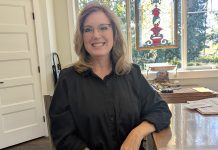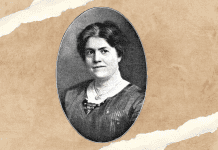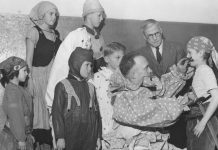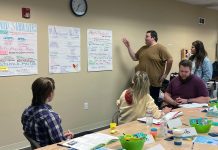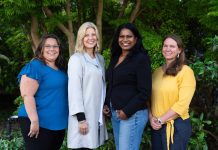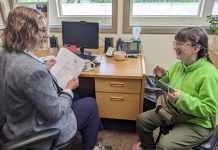The Whatcom Center for Early Learning (WCEL) marks its 50th anniversary in 2023. Let’s look back at how this beloved local organization came to be — and the differences it’s made and continues to make in our community.
Bellingham resident Anne Brown was a public nurse at the Whatcom County Health Department more than 50 years ago, when many children born with disabilities and birth defects were often placed in institutions. Meanwhile, states were trying to figure out how to provide services and support for children in need living at home, with a goal to keep them from being institutionalized by providing parents and families the support they needed. This was before Washington state had signed on to the Education for All Handicapped Children Act in 1975. Since 1990, the legislation has been referred to as the Individuals with Disabilities Education Act (IDEA), which governs how states and public agencies provide early intervention, special education, and related services to more than 6.5 million eligible infants, toddlers, children, and youth with disabilities.
Anne was tasked with the responsibility to work with these families to support the child’s development and teach family members skills to help with the physical challenges and delays of these very young children who didn’t yet qualify for programs offered by public schools. Anne’s goals included providing support in the family home to help the child’s success and address the issue of family isolation.
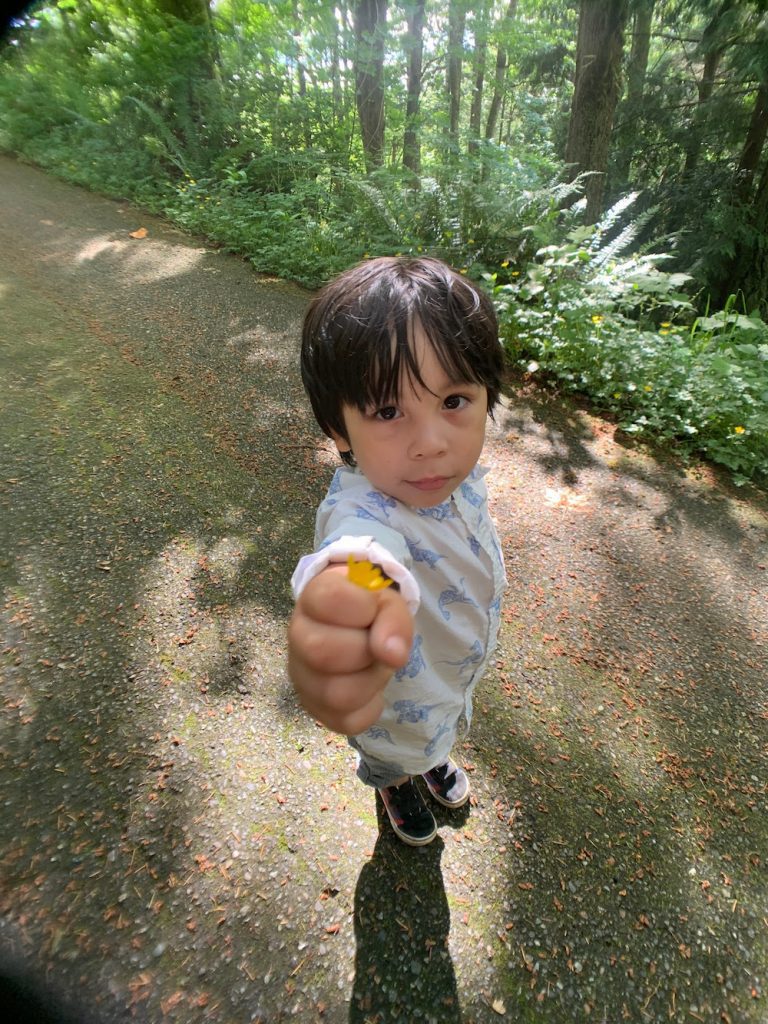
Anne worked with a group of people throughout Whatcom County to provide direct support services, including WWU professor Dr. C. Max Higbee who would launch the Max Higbee Center in 1984. “Anne always likes to reiterate that it wasn’t just her,” says current WCEL Executive Director Sierra James. In 1973, under Anne’s leadership, the group formed what is now known as WCEL.
For many years, WCEL depended upon the generosity of organizations like Western Washington University and the Opportunity Council for physical space. WCEL currently has three locations: the Big Blue House, Little Brick House, and the Cordata Location.
The Big Blue House, on H Street became their Bellingham home base in the late ’90s, with administrative office space and room for in-person services for children and families, as well as an outdoor space for additional activities. Little Brick House, acquired in 2019, is in Ferndale, and the newest WCEL location, in Cordata, was added to the facility roster in 2021.
Development and Communications Director Erin Malone came to WCEL 10 years ago. “I was drawn to the organization because I was interested in children — and education, particularly — and was drawn to the organization because it had such a great model,” Erin says. “The services that were provided, the staff who were providing those services, and the history of the program just really spoke to me.”
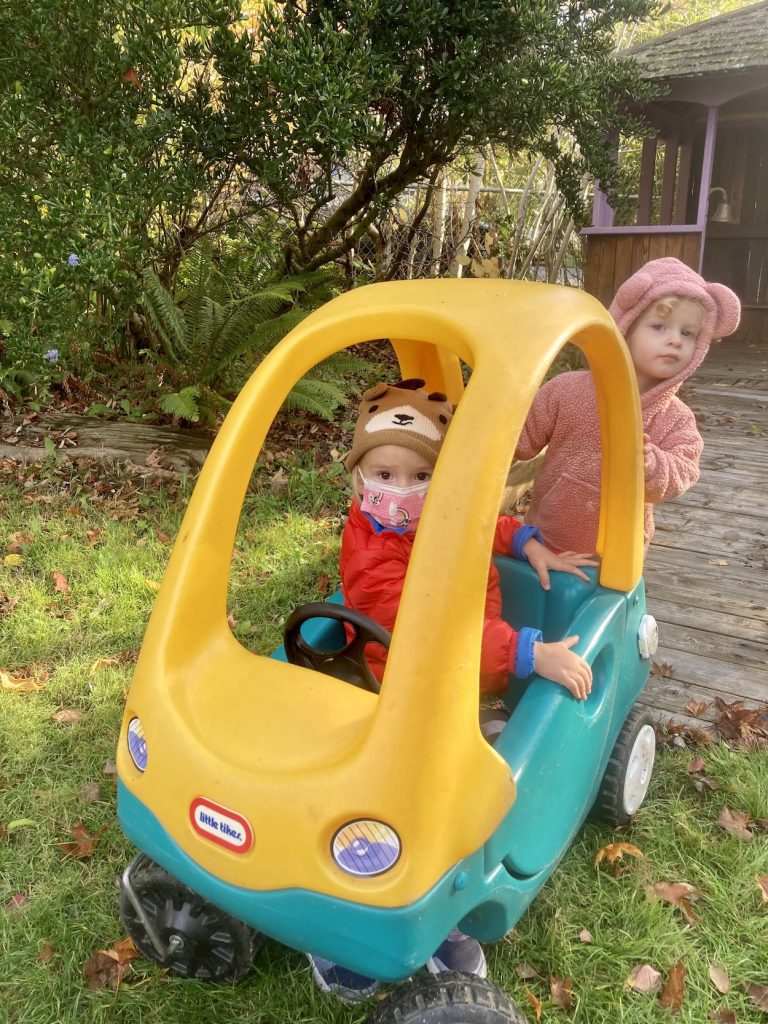
In the past decade, the staff has grown from 10 people to nearly 50 employees. The number of children and families served doubled from 2015 to 2021. According to Sierra, this happened for a few reasons. The state provided more funding, the community became more aware of their work (with help from this video), families actively asked for referrals, and some learned that they could self-refer.
Still, various barriers to accessing services remain. “One of WCEL’s goals is to do better for kids of color in our community, to help to address those health disparities that have been noticed throughout the pandemic,” says Sierra. “For some Latinx families, the fear of ICE is a barrier, and WCEL being a government-funded institution is fearful for them.” (To be clear, WCEL does not turn over records, and is actively working on finding trusted messengers that can help with sharing information to those communities.)
Sierra says leadership has been focusing on DEI work in the agency, and the last couple of years have done really deep work, including quarterly staff trainings. One recent concept discussed was the school-to-prison pipeline that is talked about in racial terms. Through disability terms, approximately 40% to 60% of the prison population would be eligible for special ed support in a school system. In the case of a Black family with a young Black male who has social, emotional, or behavior issues, systemic oppression is going to be working against these children.
Another barrier recently identified is that the term “early intervention” is off-putting. Those services are now referred to as “early support.”
In general, over the past 6 months, the number of families served has increased by 15%. Sierra attributes this to the fact that vaccines are now available for this age group, and they feel safer gathering in person; families are able to see their kids next to their peers. When WCEL held its 2022 summer picnic, it was the first time some parents of toddlers had experienced their child around others in their age group.
There are still families in our community that either aren’t aware of WCEL or don’t know how to access services. WCEL wants families with any concerns about their children to have them checked out as soon as possible.
“The ability for a child’s brain to change in the early period of their life is huge,” Erin says. “Eighty-seven percent of brain development happens from birth to age 3. We only have this little period at the beginning of their lives, and we want to set it up so it’s the best it can be.”
To get your child into services, or if you have concerns that your child may have a slight delay or a disability, you can ask for a free evaluation. Families can call 360-715-7485 with questions about their child’s development. There will be a quick screening over the phone, at which point the child may be directed to other resources. In any event, partnership with your pediatrician or family doctor is also important, as they can make referrals.
WCEL, along with the Opportunity Council, are the two early support providers in Whatcom County. Callers can request either agency, and where the family lives may dictate access to one over the other. Contacting WCEL is a great way to find resources and connect with service providers and other families in a community that understands what you’re going through.
Information for WCEL’s upcoming 50th anniversary events will be released through social media. Please follow WCEL on Facebook and Instagram for the latest.

